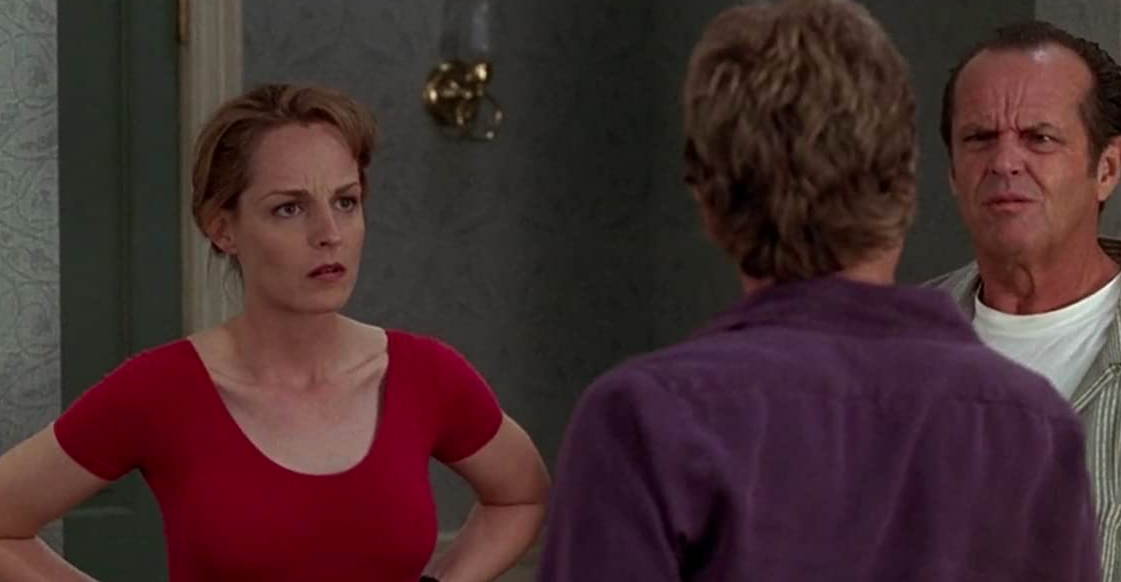As Good As It Gets (dir. James L. Brooks, 1997) - Review
Download the As Good As It Gets screenplay for personal, private use.
As Good As It Gets might be a microcosm of Jack Nicholson's storied career: he slithers around with the crazed eyes and greasy locks of a sex offender on the lam, leering at fragile-looking younger women, and wheezing out foul little comments at every likeable onscreen peer. And somehow it works. How does a film which opens with the protagonist putting a dog in a trash compactor and then racially harassing a neighbor turn into a romcom with an 85% on Rotten Tomatoes? Jack Nicholson. That's how.
There is a truly timeless quality about Nicholson's lechy charisma. It feels like he was born with crow's feet and the smell of Newports oozing from his combover. The effect apparently remains as compelling in 21st century Tinseltown as in his late millennium classics- who can forget the vision of him hoving into view behind a 22 year Jennifer Lawrence, sunglasses and smirk firmly plastered to his face, to tell the newly-minted Oscar winner she looked like girlfriend material? Nicholson may have retired from the public eye, at the ripe old age of 84, but he can rest easy knowing his appeal was suitably distilled on film back in 1997; now it can age and mature like some kind of dodgy spirit, getting progressively funkier and more potent.
The notion of a bigoted 60 year old man with OCD (and probably autism) harassing a waitress half his age is not the conventional image of showstopping romance. Even in the Gomorrah of the late 90's which spawned As Good As It Gets, it's hard to imagine such a pairing grafting easily onto the conventional romcom framework; but with Nicholson's unique ability to make the grotesque compelling, it makes a decent stab at the struggle for human connection.
Melvin Udall (Nicholson) is a best-selling romance novelist whose talent for spinning loin-warming shlock is matched only by his bigotry. Melvin lurks the darkened crevices of Manhattan, slinging racist, homophobic, sexist, and generally creepy remarks at everyone who crosses his path, particularly his gay artist neighbor Simon (Greg Kinnear) and Carol (Helen Hunt), the waitress at his favourite restaurant. Compelled to look after Simon's dog (despite having previously put it in the garbage chute) after the owner suffers a violent robbery, Melvin goes on to discover his softer side and the meaning of friendship, becoming a kind of horny Scrooge- a miserly git reformed not by the threat of supernatural retribution, but the force of his obsession with a hospitality worker.
Despite the breathtaking crush of sentimental plot tropes packed into the two hours- setting the tone early with dog ownership presented as a cure for racism- compelling, realistic anxieties emerge between the pantomime gestures. The characters revolt against the ridiculous stereotypes they fall into, particularly Carol's hardworking, angelic single mom; her eventual acceptance of Melvin is far from a fairytale, in keeping with the film's title, but avoids veering into cynicism or bitterness. Melvin is far from conventional, far from the expectation of a romantic or even appealing figure; but the raw sincerity in his weirdness makes him magnetic. Classic Nicholson.





